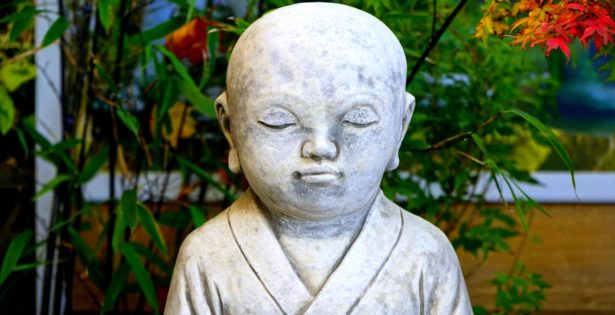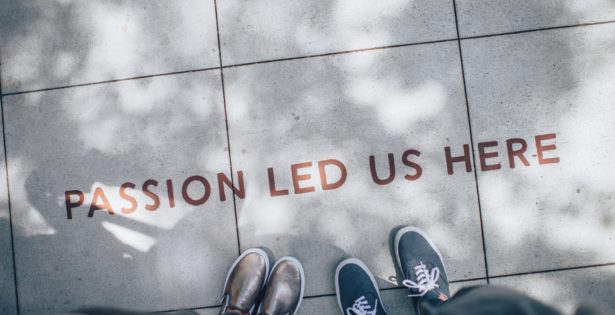WP_Query Object
(
[query] => Array
(
[category__in] => Array
(
[0] => 26
)
[post__not_in] => Array
(
[0] => 7210
)
[posts_per_page] => 50
[ignore_sticky_posts] => 1
[orderby] => desc
[_shuffle_and_pick] => 3
)
[query_vars] => Array
(
[category__in] => Array
(
[0] => 26
)
[post__not_in] => Array
(
[0] => 7210
)
[posts_per_page] => 50
[ignore_sticky_posts] => 1
[orderby] => desc
[_shuffle_and_pick] => 3
[error] =>
[m] =>
[p] => 0
[post_parent] =>
[subpost] =>
[subpost_id] =>
[attachment] =>
[attachment_id] => 0
[name] =>
[pagename] =>
[page_id] => 0
[second] =>
[minute] =>
[hour] =>
[day] => 0
[monthnum] => 0
[year] => 0
[w] => 0
[category_name] => relationships_forgiveness
[tag] =>
[cat] => 26
[tag_id] =>
[author] =>
[author_name] =>
[feed] =>
[tb] =>
[paged] => 0
[meta_key] =>
[meta_value] =>
[preview] =>
[s] =>
[sentence] =>
[title] =>
[fields] =>
[menu_order] =>
[embed] =>
[category__not_in] => Array
(
)
[category__and] => Array
(
)
[post__in] => Array
(
)
[post_name__in] => Array
(
)
[tag__in] => Array
(
)
[tag__not_in] => Array
(
)
[tag__and] => Array
(
)
[tag_slug__in] => Array
(
)
[tag_slug__and] => Array
(
)
[post_parent__in] => Array
(
)
[post_parent__not_in] => Array
(
)
[author__in] => Array
(
)
[author__not_in] => Array
(
)
[search_columns] => Array
(
)
[suppress_filters] =>
[cache_results] => 1
[update_post_term_cache] => 1
[update_menu_item_cache] =>
[lazy_load_term_meta] => 1
[update_post_meta_cache] => 1
[post_type] =>
[nopaging] =>
[comments_per_page] => 50
[no_found_rows] =>
[order] => DESC
)
[tax_query] => WP_Tax_Query Object
(
[queries] => Array
(
[0] => Array
(
[taxonomy] => category
[terms] => Array
(
[0] => 26
)
[field] => term_id
[operator] => IN
[include_children] =>
)
)
[relation] => AND
[table_aliases:protected] => Array
(
[0] => wp_term_relationships
)
[queried_terms] => Array
(
[category] => Array
(
[terms] => Array
(
[0] => 26
)
[field] => term_id
)
)
[primary_table] => wp_posts
[primary_id_column] => ID
)
[meta_query] => WP_Meta_Query Object
(
[queries] => Array
(
)
[relation] =>
[meta_table] =>
[meta_id_column] =>
[primary_table] =>
[primary_id_column] =>
[table_aliases:protected] => Array
(
)
[clauses:protected] => Array
(
)
[has_or_relation:protected] =>
)
[date_query] =>
[request] =>
SELECT SQL_CALC_FOUND_ROWS wp_posts.ID
FROM wp_posts LEFT JOIN wp_term_relationships ON (wp_posts.ID = wp_term_relationships.object_id)
WHERE 1=1 AND wp_posts.ID NOT IN (7210) AND (
wp_term_relationships.term_taxonomy_id IN (26)
) AND ((wp_posts.post_type = 'post' AND (wp_posts.post_status = 'publish' OR wp_posts.post_status = 'acf-disabled')))
AND ID NOT IN
(SELECT `post_id` FROM wp_postmeta
WHERE `meta_key` = '_pilotpress_level'
AND `meta_value` IN ('','employee')
AND `post_id` NOT IN
(SELECT `post_id` FROM wp_postmeta
WHERE `meta_key` = '_pilotpress_level'
AND `meta_value` IN ('' )))
GROUP BY wp_posts.ID
ORDER BY wp_posts.post_date DESC
LIMIT 0, 50
[posts] => Array
(
[0] => WP_Post Object
(
[ID] => 8949
[post_author] => 3
[post_date] => 2023-02-08 20:41:47
[post_date_gmt] => 2023-02-08 20:41:47
[post_content] =>
In my early 20s I had a boss who would ask me every morning, “How goes the battle?” I had never heard that expression before, but recognized that he meant, “How’s it going?” At the time I was learning about neuro-linguistic programming and becoming attuned to people’s word choices, so it struck me as an interesting – and loaded – phrase. Then I began to notice how common it is for people to characterize life as a fight – an ongoing series of conflicts, something we need to slog through, with a risk of imminent danger and an us-versus-them mentality.
Even if we see ourselves as winning the battle, if we hold this perspective, there’s still a chance of getting ambushed, right up to the last minute. So, we must always have our guard up, sleep with one eye open, check our drink for poison, and so on. It causes chronic stress, and we’re never entirely free.
Meanwhile, there are people who see life in a more positive light – as a game, a gift, an opportunity to explore, connect, experience, and be of service. Are they naïve? Are they less successful? Are they blindsided by the unexpected? I don’t believe so. If anything, because their perspective isn’t innately stress-inducing, they have greater resources for adapting to whatever comes.
I encourage you to examine your relationship with the world. How would you sum up your story? What kind of words do you use, both to others and yourself, when you talk and think about your challenges and ambitions? How do you feel about others aiming for the same goals as you? What sorts of bodily feelings go along with this? For extra support in re-wiring yourself, check out our workbook, Freedom, and try doing it for a month.
If you do find that you’re harboring a “battle” mentality, I wonder if it’s possible for you to symbolically wave the white flag, saying to the world (and yourself), “I’m not at war with you.” I know the stakes feel very high sometimes, but what if. . . (1) you could clearly see that being in ongoing conflict is more detrimental than it is beneficial to you, and (2) you had an unwavering link to something you could trust, an assurance that you are fundamentally okay, no matter what.
We often speak of rousing our inner warrior and the term “warrior” comes up a lot in self-help books. The warrior archetype is deep in our collective consciousness. Everyone knows it. And there’s a good side to it. Often, we evoke the warrior archetype when we wish to inspire ourselves to be clear, sharp, and disciplined, to stand up for our values, to protect those in need, to be brave, to have integrity and honor. But the other side of being a warrior is, of course, that you’re at war.
How can we embody these virtues without the sense of perpetual conflict? We live according to archetypes all the time – father, mother, husband, wife, cop, healer, good guy, bad guy, peacekeeper, curmudgeon, artist – mostly without realizing it. The first step is to become aware of the archetypes we’re subconsciously abiding by. Just making it conscious starts the process of releasing us from an archetype’s limitations.
Second, we can begin to forge a picture of something better and freer than any single archetype – our own Highest Self. Who would you be if you were clear, lighthearted, determined, loving, creative, peaceful, spiritual, purposeful, artful, present, honest, forgiving, kind, and brave?
Contrary to what your mind might say, that’s not too many virtues for one person to possess. You’re already somewhere on the spectrum of embodying every one of them. Whatever you dub this most-evolved you – Highest Self, Noble Leader, Queen/King, Divine Being, etc. – know that this is something you can freely choose at any moment.
Spend some time visualizing and feeling into this Highest Self. Imagine that she/he is just waiting for permission to step into the driver’s seat. When your small mind takes over and your habits run you, the Highest Self is nudged into the backseat. It may take some conscious surrender to let go of your default program and allow the better You to be in charge.
Another visualization you might find useful is to see yourself in the center of a circle of many different versions of yourself – all the possible ways you could be. Look around and see if you can spot the one that is the clearest, highest expression of your virtuous essence. Make a choice, and step into that Self. Try doing this every morning for a week and see what changes.
Be well,
Peter
[post_title] => Be Better Than A Warrior
[post_excerpt] =>
[post_status] => publish
[comment_status] => open
[ping_status] => open
[post_password] =>
[post_name] => be-better-than-a-warrior
[to_ping] =>
[pinged] =>
[post_modified] => 2023-02-08 20:41:47
[post_modified_gmt] => 2023-02-08 20:41:47
[post_content_filtered] =>
[post_parent] => 0
[guid] => https://thedragontree.com/?p=8949
[menu_order] => 0
[post_type] => post
[post_mime_type] =>
[comment_count] => 1
[filter] => raw
[webinar_id] => 0
)
[1] => WP_Post Object
(
[ID] => 4711
[post_author] => 3
[post_date] => 2015-02-10 07:52:34
[post_date_gmt] => 2015-02-10 15:52:34
[post_content] =>
This year, Americans are projected to spend $18.9 billion on Valentine’s Day gifts, which just goes to show you what a powerful force Love is. Because, more than anything else, Love is about presents. Indeed, from the time of cave people, archeologists have found fossils of heart shaped boxes filled with an assortment of the most delectable bits of mammoth meat.
But, seriously, that $18.9 billion figure is a fact. Has Valentine’s Day gone the way of Christmas – a virtuous sentiment that’s turned in a shopping frenzy? I know enough people who already hate Valentine’s Day because they’re single, and they feel like the world is rubbing it in their faces. The last thing they need is this crazy degree of over-the-top spending to fan the flames of their irritation.
 Well, I’m here to fight for the true spirit of Valentine’s Day. Or, what I want to be the true spirit of Valentine’s Day – a celebration of Love in all its forms. Not just the edible underwear kind. A celebration of real Love doesn’t leave anyone out and it doesn’t cost a penny. And if it rubs anything in your face, consider yourself lucky.
Well, I’m here to fight for the true spirit of Valentine’s Day. Or, what I want to be the true spirit of Valentine’s Day – a celebration of Love in all its forms. Not just the edible underwear kind. A celebration of real Love doesn’t leave anyone out and it doesn’t cost a penny. And if it rubs anything in your face, consider yourself lucky.
As I alluded to in my last article, I had an especially introspective period about 15 years ago, during which I tapped into my unconscious and discovered some deep truths and fears. I had the sense that what I was unearthing wasn’t unique to me, but common to all of humankind. Carl Jung called this realm the collective unconscious, and he described it as a facet of our consciousness that is shared by everyone.
What I found here were some very basic fears: the fear of loving, the fear of being loved, and the fear of the loss of love. It all comes down to the last one, doesn’t it? When we think of what humans fear the most, death often comes to mind, but much of what scares us about death is the idea of the loss of love: losing everything we love about the world and our life, losing everyone’s love for us, and for those we love to lose us and our love for them.
It’s all an expression of the sad belief that Love is a capricious and conditional thing, and that humans are sort of in control of it. But this belief and the resulting fear we have around Love, which so squelches our experience and expression of it, results mainly from one central, subconscious confusion – that approval is Love. Approval is a crappy substitute for Love, though.
There’s a distinct difference between wanting and getting approval versus wanting and experiencing Love. See if you can bring to mind someone whose approval you want (maybe even your own), and then let just let yourself feel, in your body, what it’s like to want someone’s approval. It’s an unresolved sort of feeling, like we might not be altogether okay if we don’t get something that only they can give. For me, it’s an unpleasant yearning feeling. A subservient feeling.
When we tune in to this feeling – wanting the world to approve of us – it’s clear that following it isn’t going to serve our highest potential or make us feel truly satisfied. Even if we succeed at getting lots and lots of approval, it doesn’t quench the want of approval.
So, why do you think we’re going to spend $18.9 billion on Valentine’s Day presents? I’d guess that it has a bit more to do with approval than with Love. But, don’t let me stop you from getting flowers for someone special. I like calla lilies, by the way. Preferably a mix of white and colored ones, and maybe a massage as well.
However, just remember that Love cares nothing for flowers – at least not more than it does for anything else. Every one of us has the ability to consciously experience Love at will, to allow Love into all parts of ourselves, to withhold no Love from ourselves or others, and to actively Love every part of life. This makes approval a paltry goal in comparison. And this, my friends, is a devotion that’s worthy of a holiday.
Love the One You’re With,
Dr. Peter Borten
[post_title] => How to Get Lucky on Valentine’s Day
[post_excerpt] =>
[post_status] => publish
[comment_status] => open
[ping_status] => closed
[post_password] =>
[post_name] => get-lucky-valentines-day
[to_ping] =>
[pinged] =>
[post_modified] => 2019-05-26 02:21:52
[post_modified_gmt] => 2019-05-26 02:21:52
[post_content_filtered] =>
[post_parent] => 0
[guid] => http://www.thedragontree.com/?p=4711
[menu_order] => 0
[post_type] => post
[post_mime_type] =>
[comment_count] => 0
[filter] => raw
[webinar_id] => 0
)
[2] => WP_Post Object
(
[ID] => 4662
[post_author] => 3
[post_date] => 2015-01-06 07:50:00
[post_date_gmt] => 2015-01-06 15:50:00
[post_content] =>
The first of January has sometimes felt to me like an arbitrary date to divide our lives by, since most of our projects and phases don’t conform to the calendar year. But I’ve decided it’s as good a time as any to make resolutions, and perhaps there’s some group momentum we generate when we all align ourselves around virtuous intentions together.
Maybe you’re familiar with the concept of “drafting” or “slipstreaming,” whereby someone in a vehicle can ride in the wake of moving air or water created by a vehicle in front of them. It reduces resistance and helps pull them along, making for an easier ride. Cyclists and racecar drivers do it all the time – drafting the bike or car in front of them by staying right behind them. The only one who doesn’t benefit much from it is the vehicle in the front. In the case of our New Year’s resolutions, we’ll all be drafting a guy named Barry who lives in Hoboken and is really jazzed about his new diet.
So, let’s take the opportunity to consider what we want 2017 to be about. My friend Andy Drish chooses a theme for each year at its outset, and he says the year has a way of conforming to the vision he establishes. When he looks back, it’s impressive to see just how many things seemed to fall into place along the lines of the year’s theme.
Some of his past themes included The Year of Exponential Growth, The Year of Being a Man Who Fearlessly and Courageously Gives His Gifts to the World, and The Year of Self Love. I think this is a brilliant idea, and I recommend you choose a theme for 2017 right now, and write it down. For me, this is The Year of Deep, Unshakable Happiness.
If you feel especially inspired, you can even choose a theme for each month, such as The Month of Serving My Species, The Month of Learning to Ask for What I Want, and The Month of Letting Go of the Struggle. If you’re the kind of person who thrives on structure, this can really help keep you on track while supporting you to focus on several different areas of growth. Each month could be a sub-theme that supports the year’s overarching theme. If coming up with twelve more themes sounds too complicated, just stick to your one theme of the year.
Once you have settled on a theme (or a yearlong theme plus twelve monthly themes), get a piece of paper and jot down some things you could do to support the actualization of this theme. It’s not so important that these actions directly produce the condition stated in your theme. Just think of them as the supportive part of the contract you’re creating with yourself and the universe.
To use my own theme as an example, even though there’s no formula for being happy, there are certainly a handful of things that can help. My intention for the year is to tap into that happy-for-no-reason state of mind that isn’t dependent upon particular life circumstances. To support the actualization of this state, I’ve agreed to do a bunch of things that I know are good for me, such as meditating, eating well, exercising, spending more time with friends, going on more dates with my wife, journaling, and abstaining from complaining or criticizing.
I set parameters around each of these actions (once a day, once a week, once a month, etc.), and I know that as I keep these agreements, I reinforce my trust in myself. Virtually everything I say I’m going to do gets done, because I know my subconscious is watching, and because, well, keeping your word matters – even (perhaps especially) if it’s just with yourself. Another thing that happens when I’m conscientious about noticing the agreements I make and being sure to keep them is that my mind becomes easier to manage. I don’t have the mental burden of broken or forgotten agreements weighing on me.
The result of this consistency is that a kind of momentum develops – my own slipstream. And when I’m in this groove, I notice that magic happens.
Try it. It doesn’t require talent, excessively effort, or charisma. Just choose a theme, make some supportive agreements – nothing that exceeds what you know you can follow through on – choose parameters (frequency, time period), and then honestly keep these agreements.
This year, I know more people who are consciously engaging in a process like this than I’ve ever known before. I’m excited to see what we accomplish. If you feel so moved, please share the theme of your year in the comments section below.
Be well,
Dr. Peter Borten
[post_title] => The Year of Deep, Unshakable Happiness
[post_excerpt] =>
[post_status] => publish
[comment_status] => open
[ping_status] => closed
[post_password] =>
[post_name] => taking-drivers-seat-year
[to_ping] =>
[pinged] =>
[post_modified] => 2019-05-26 02:08:32
[post_modified_gmt] => 2019-05-26 02:08:32
[post_content_filtered] =>
[post_parent] => 0
[guid] => http://www.thedragontree.com/?p=4662
[menu_order] => 0
[post_type] => post
[post_mime_type] =>
[comment_count] => 15
[filter] => raw
[webinar_id] => 0
)
)
[post_count] => 3
[current_post] => -1
[before_loop] => 1
[in_the_loop] =>
[post] => WP_Post Object
(
[ID] => 8949
[post_author] => 3
[post_date] => 2023-02-08 20:41:47
[post_date_gmt] => 2023-02-08 20:41:47
[post_content] =>
In my early 20s I had a boss who would ask me every morning, “How goes the battle?” I had never heard that expression before, but recognized that he meant, “How’s it going?” At the time I was learning about neuro-linguistic programming and becoming attuned to people’s word choices, so it struck me as an interesting – and loaded – phrase. Then I began to notice how common it is for people to characterize life as a fight – an ongoing series of conflicts, something we need to slog through, with a risk of imminent danger and an us-versus-them mentality.
Even if we see ourselves as winning the battle, if we hold this perspective, there’s still a chance of getting ambushed, right up to the last minute. So, we must always have our guard up, sleep with one eye open, check our drink for poison, and so on. It causes chronic stress, and we’re never entirely free.
Meanwhile, there are people who see life in a more positive light – as a game, a gift, an opportunity to explore, connect, experience, and be of service. Are they naïve? Are they less successful? Are they blindsided by the unexpected? I don’t believe so. If anything, because their perspective isn’t innately stress-inducing, they have greater resources for adapting to whatever comes.
I encourage you to examine your relationship with the world. How would you sum up your story? What kind of words do you use, both to others and yourself, when you talk and think about your challenges and ambitions? How do you feel about others aiming for the same goals as you? What sorts of bodily feelings go along with this? For extra support in re-wiring yourself, check out our workbook, Freedom, and try doing it for a month.
If you do find that you’re harboring a “battle” mentality, I wonder if it’s possible for you to symbolically wave the white flag, saying to the world (and yourself), “I’m not at war with you.” I know the stakes feel very high sometimes, but what if. . . (1) you could clearly see that being in ongoing conflict is more detrimental than it is beneficial to you, and (2) you had an unwavering link to something you could trust, an assurance that you are fundamentally okay, no matter what.
We often speak of rousing our inner warrior and the term “warrior” comes up a lot in self-help books. The warrior archetype is deep in our collective consciousness. Everyone knows it. And there’s a good side to it. Often, we evoke the warrior archetype when we wish to inspire ourselves to be clear, sharp, and disciplined, to stand up for our values, to protect those in need, to be brave, to have integrity and honor. But the other side of being a warrior is, of course, that you’re at war.
How can we embody these virtues without the sense of perpetual conflict? We live according to archetypes all the time – father, mother, husband, wife, cop, healer, good guy, bad guy, peacekeeper, curmudgeon, artist – mostly without realizing it. The first step is to become aware of the archetypes we’re subconsciously abiding by. Just making it conscious starts the process of releasing us from an archetype’s limitations.
Second, we can begin to forge a picture of something better and freer than any single archetype – our own Highest Self. Who would you be if you were clear, lighthearted, determined, loving, creative, peaceful, spiritual, purposeful, artful, present, honest, forgiving, kind, and brave?
Contrary to what your mind might say, that’s not too many virtues for one person to possess. You’re already somewhere on the spectrum of embodying every one of them. Whatever you dub this most-evolved you – Highest Self, Noble Leader, Queen/King, Divine Being, etc. – know that this is something you can freely choose at any moment.
Spend some time visualizing and feeling into this Highest Self. Imagine that she/he is just waiting for permission to step into the driver’s seat. When your small mind takes over and your habits run you, the Highest Self is nudged into the backseat. It may take some conscious surrender to let go of your default program and allow the better You to be in charge.
Another visualization you might find useful is to see yourself in the center of a circle of many different versions of yourself – all the possible ways you could be. Look around and see if you can spot the one that is the clearest, highest expression of your virtuous essence. Make a choice, and step into that Self. Try doing this every morning for a week and see what changes.
Be well,
Peter
[post_title] => Be Better Than A Warrior
[post_excerpt] =>
[post_status] => publish
[comment_status] => open
[ping_status] => open
[post_password] =>
[post_name] => be-better-than-a-warrior
[to_ping] =>
[pinged] =>
[post_modified] => 2023-02-08 20:41:47
[post_modified_gmt] => 2023-02-08 20:41:47
[post_content_filtered] =>
[post_parent] => 0
[guid] => https://thedragontree.com/?p=8949
[menu_order] => 0
[post_type] => post
[post_mime_type] =>
[comment_count] => 1
[filter] => raw
[webinar_id] => 0
)
[comment_count] => 0
[current_comment] => -1
[found_posts] => 55
[max_num_pages] => 2
[max_num_comment_pages] => 0
[is_single] =>
[is_preview] =>
[is_page] =>
[is_archive] => 1
[is_date] =>
[is_year] =>
[is_month] =>
[is_day] =>
[is_time] =>
[is_author] =>
[is_category] => 1
[is_tag] =>
[is_tax] =>
[is_search] =>
[is_feed] =>
[is_comment_feed] =>
[is_trackback] =>
[is_home] =>
[is_privacy_policy] =>
[is_404] =>
[is_embed] =>
[is_paged] =>
[is_admin] =>
[is_attachment] =>
[is_singular] =>
[is_robots] =>
[is_favicon] =>
[is_posts_page] =>
[is_post_type_archive] =>
[query_vars_hash:WP_Query:private] => e3657d80b61b1e6ae624aae9e78d4e6d
[query_vars_changed:WP_Query:private] =>
[thumbnails_cached] =>
[allow_query_attachment_by_filename:protected] =>
[stopwords:WP_Query:private] =>
[compat_fields:WP_Query:private] => Array
(
[0] => query_vars_hash
[1] => query_vars_changed
)
[compat_methods:WP_Query:private] => Array
(
[0] => init_query_flags
[1] => parse_tax_query
)
)



 Cart
Cart










